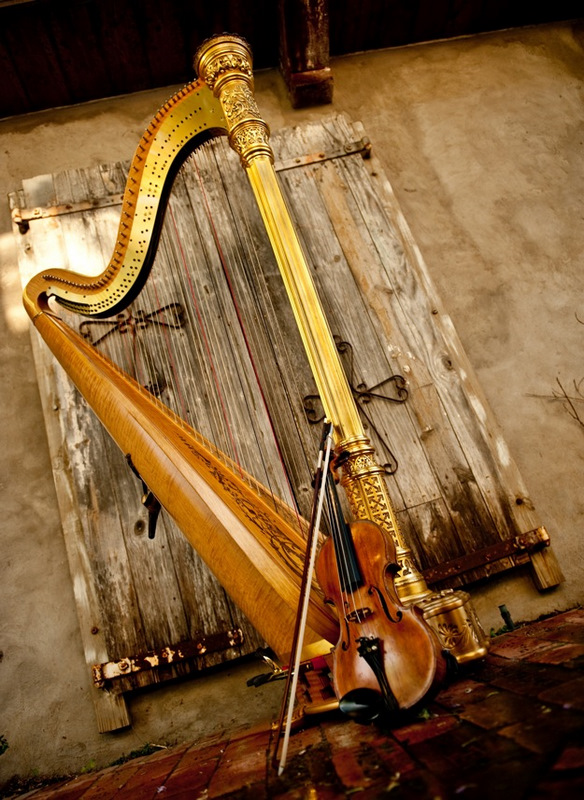What is the value of live music? I think this article by Suzanne Mentzer published in the Huffington Post is right on track:
To all who moan about the price of musicians:
A guy calls the musician's guild to get a quote on a six-piece band for a wedding. The rep says, "Off the top of my head, about $2000." The guy says, "WHAT? FOR MUSIC?" The rep responds, "I'll tell you what. Call the plumbers union and ask for six plumbers to work from 6 'til midnight on a Saturday night. Whatever they charge you, we'll work for half."
I saw this on a social media site and it struck a chord, no pun intended. I could not help but think of the situation at hand for many classical musicians in the US.
Roughly talking turkey, there are about 115 orchestras in the US with budgets over 2.5 million, each employing nearly 100 musicians, each with another 5-10 staff members, on average. This does not include ballet orchestras, or orchestras with lower budgets. Opera America, a national service center, lists 150 member companies. The "union" American Guild of Musical Artists lists 6540 members in good standing, comprised of dancers, opera singers (soloists and choristers) and stage managers. Each opera, ballet and orchestral organization also employs stage crew, many of which are members of IATSI, the stagehands union. This is, at best, a blurry picture of the multitude of people who could be unemployed should the classical arts cave.
This does not even include the associated businesses: restaurants, hotels, parking garages for the paying public, instrument and equipment manufacturers, instrument tweakers and tuners..
Every day I read of another orchestra going under or, at the very least, cutting salaries of the players by large amounts. What flotsam and jetsam this will create. These players spend lives - from a very young age - perfecting, practicing and competing to win the positions they have. They cannot imagine life not playing. Musicians have committed to rents, mortgages, college debt, and support families. Some share their talents with schools and communities. They commit to the arts organization and the community for the long haul, unlike in sports where one can be traded or a free agent.
Orchestra, opera, chamber music and solo recitals are pure, without sound enhancement. I like to think of these art forms as being organic- without additives, non-synthetic or processed. Like organic food, it is a bit more costly to produce. It is also not for profit, unlike commercial music.
Like most musicians, classical musicians, bring joy to those who hear them. They touch an emotional nerve; connect with the larger whole of humanity and cultural history; honor those who came before by continuing a tradition of excellence. It is hard to put a price on relevance, continuity, and the historical perspective. Yes, in today's financial environment classical artists are being discarded.
With a very high-level international singing career I, too, have felt the smack of the economy. The norm for a successful singer is being booked three years out. I have little work this year and nothing after August. I have a hard time being hired. I have dropped my fee to about a third of what it was, which is fine since the business was so good to me. My high powered New York management tells me its the economy.
Like the instrumentalists in those orchestras I have lived as a singer for a long time and it is an ingrained part of who I am. Not a day went by for thirty years where I did not think about the condition of my voice and my body or have music burning into my brain cells. At times I feel like a part of me has been amputated. I do miss making music at a high level, the camaraderie and collaboration with colleagues, and most of all, my part in the continuation of this art form that goes back centuries. I have often felt it a privilege to sing music that has endured and try to do it justice.
As an ersatz writer I have a bully pulpit but I basically preach to the choir. I do not seem to reach the audience that needs persuading that classical music is viable, necessary and human. One way I can be an activist for the arts is to perform. I will continue to search for other ways, as well, for the day when I truly cannot sing anymore.
Last week, The NY Times shared the results of a study: "researchers at Northwestern University recorded the auditory brainstem responses of college students -- that is to say, their electrical brain waves -- in response to complex sounds. The group of students who reported musical training in childhood had more robust responses -- their brains were better able to pick out essential elements, like pitch, in the complex sounds when they were tested. And this was true even if the lessons had ended years ago."
I have been watching some silent films on TCM. The sound tracks are amazingly operatic in order to help sustain the emotion of the work without text. Listen to a sound track today. Even with the dialogue of the actors much of the music is classically styled and operatically emotional. Why is it so hard then to let this carry outside the movie theater?
My last beef the choice of people to be honored by Kennedy Center this year. All are honorable but not one is a classical musician. This sends a very strong subliminal message. It would have been very cool to have Led Zeppelin honored beside a figure from the classical music world.
As a culture we seem eat up whatever is fashionable, hot, new. Can't we do that and still keep a foot firmly in tradition, history, context, and more? One need not necessarily cancel out the other.



















